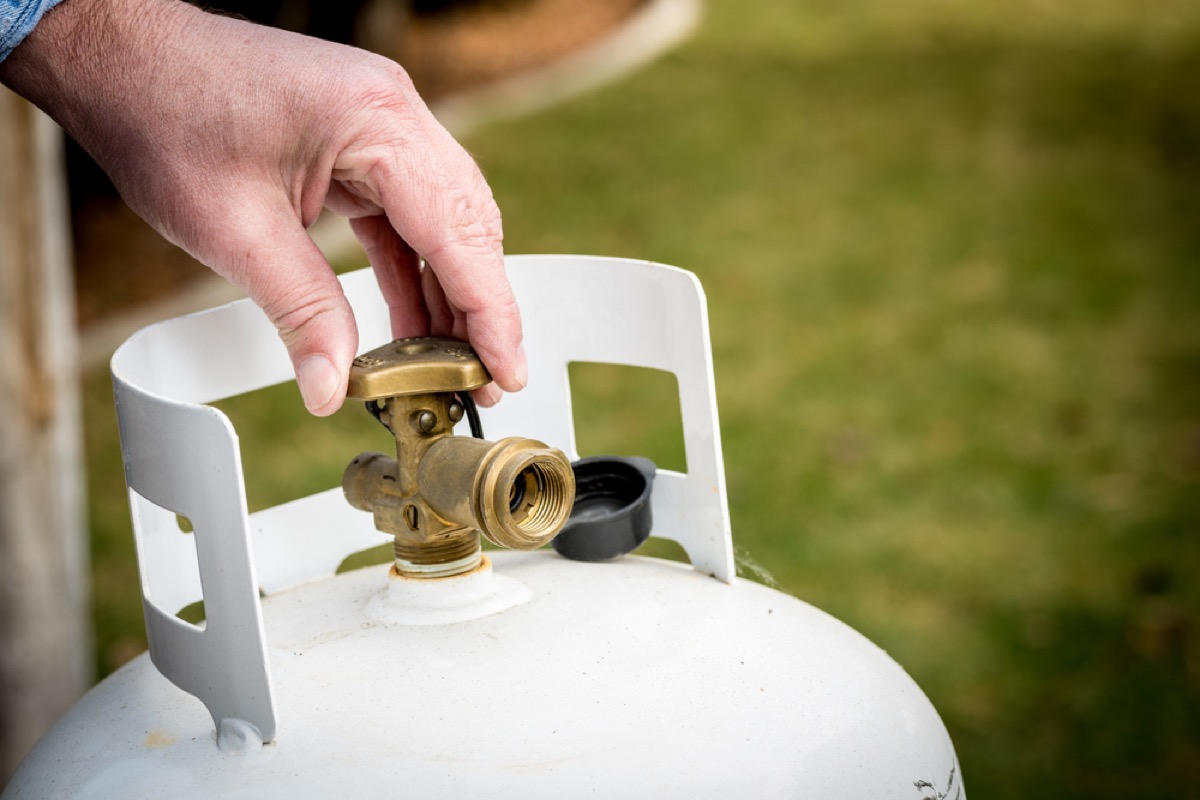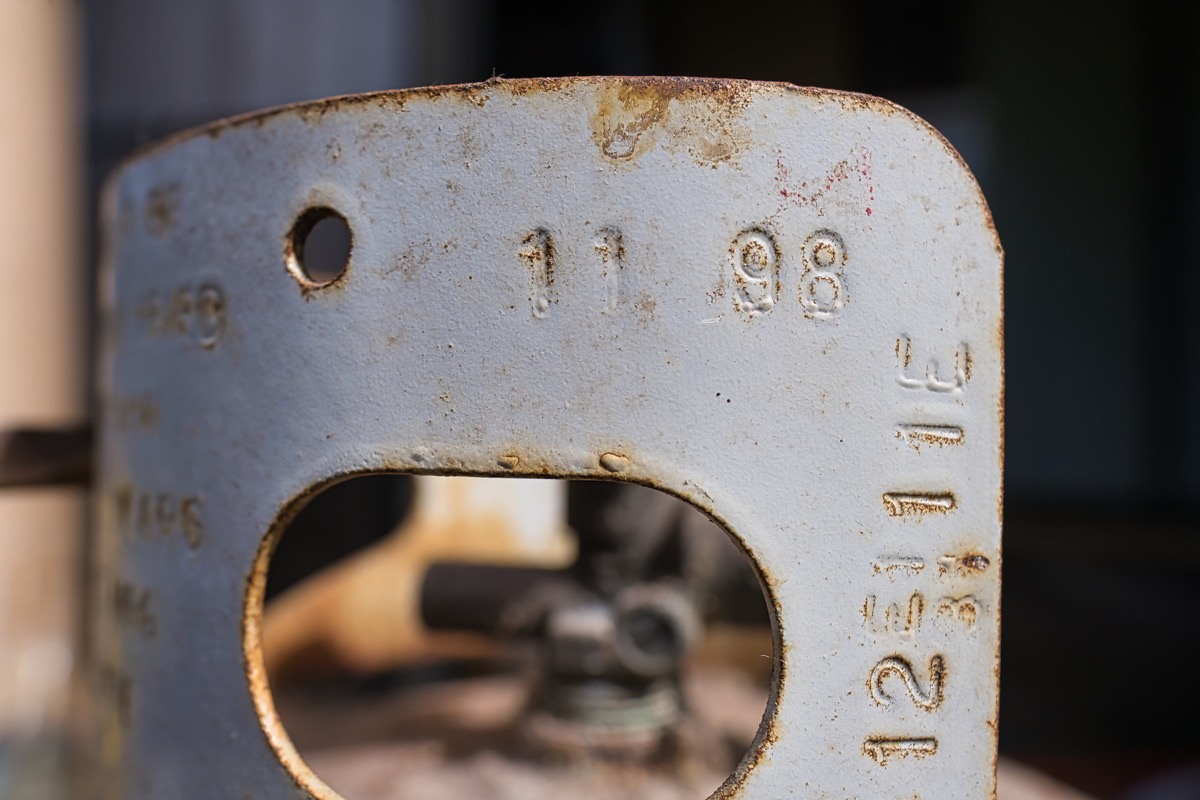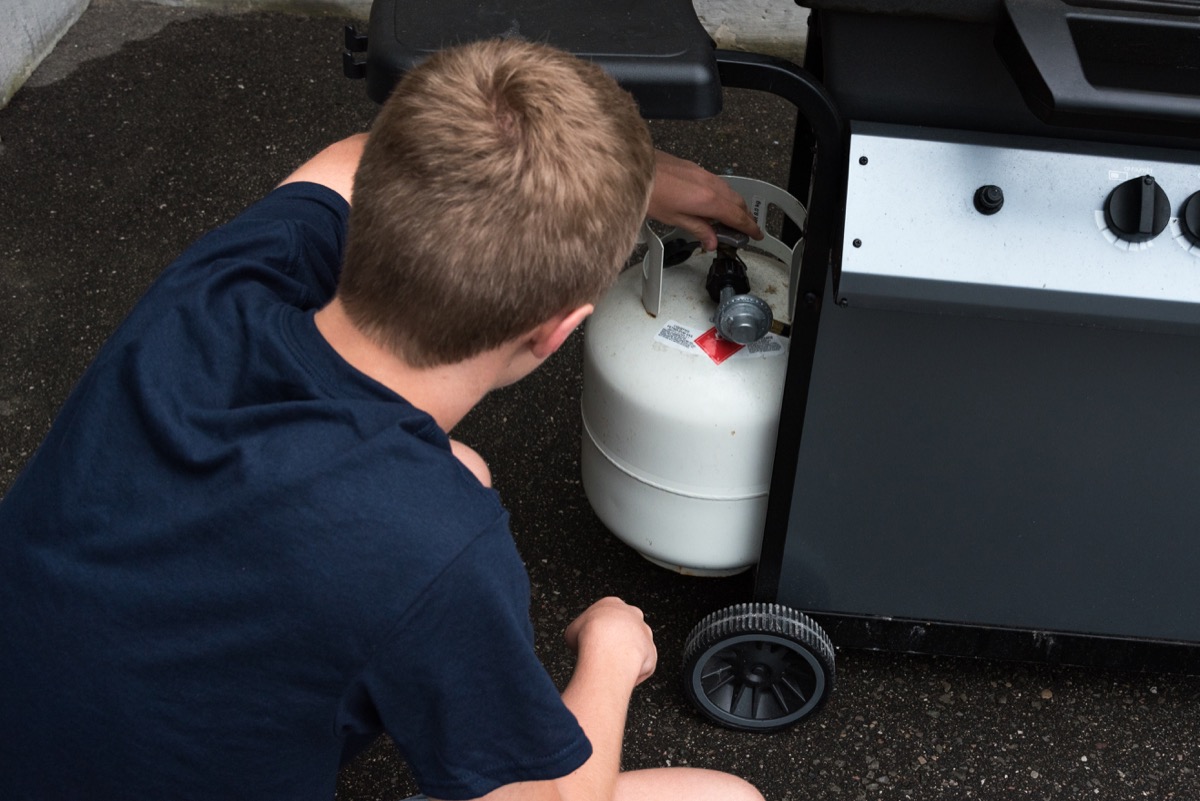Never Use a Propane Tank on Your Grill For This Long, Experts Warn

With July 4th just around the corner, grilling season is officially upon us—but before your next cookout, you’ll want to make sure your propane tank isn’t putting your party at needless risk. An expired propane tank under the grill can cause a range of problems, including gas leaks, fires, and more.
In fact, according to an estimate from the Consumer Product Safety Commission (CPSC), roughly 600 propane tanks cause fires or explode each year. “Chips, cracks, loose connections, or other damage to the tank itself or the method of delivering the propane gas can also lead to leaks,” explains Reiff Law Firm, personal injury lawyers who have sought client compensation in such cases. After the date of expiration, these problems are more likely, meaning you may be able to avoid catastrophe by simply knowing what to look for. Read on to find out how long you can safely use your propane tank, and what to do if yours is expired.
RELATED: If You See This at the Beach, Don’t Go in the Water, Experts Warn.
After this long, your propane tank can pose a danger.

In the U.S., a propane tank is qualified for safe use for up to 12 years after the date of manufacture, according to propane company Ferrellgas. After the end of its shelf life, your grill’s gas tank may be vulnerable to rust, leakage, and other potentially dangerous conditions.
If you notice any visible rust or damage to your tank before 12 years is up, you should discontinue use and bring it to a gas dealer for inspection.
RELATED: If You See This at a Barbecue, Don’t Eat It, USDA Says in New Warning.
This can fade the odor of propane.

Propane is naturally odorless, and gas companies intentionally add the chemical mercaptan to give gas tanks their distinctive smell. This helps notify users of a leak, serving to minimize the risk of fires and gas explosions. However, if a propane tank gets rust, water, or air inside, it can cause the gas to lose its odor, increasing your risk of a propane accident, explains Smart Touch Energy.
For more summer safety tips sent directly to your inbox, sign up for our daily newsletter.
Here’s how to find out if your tank is expired.

On the collar or handle area of your propane tank, you should be able to locate the stamped date of manufacture, Ferrellgas explains. The company notes that the date is typically written in “a standard Month-Year format,” meaning if your tank was built in June of 2020, it would read “06-20” (with or without the dash). Using that information, simply count twelve years ahead to find out when your tank expires.
Past 12 years, you’ll need to have your tank re-certified.

Assuming your expired tank is in tip-top shape, it can be re-certified for continued use after 12 years. As part of the recertification, a new date will be written on your gas tank, using a different format.
Unlike the original date, the recertification date will include letters (A, B, C, or D) to mark the quarter of the year in which the unit was inspected. “The letter ‘A’ would mean the tank had been re-certified in January, February, or March, followed by the two numbers of the year,” explains Ferrellgas. After this date, you can safely use the tank for another five, seven, or 12 years, depending on the method of recertification.
If, after the initial 12 years, your tank has seen better days, you can trade it in for a new one for a modest fee at your original gas dealer.